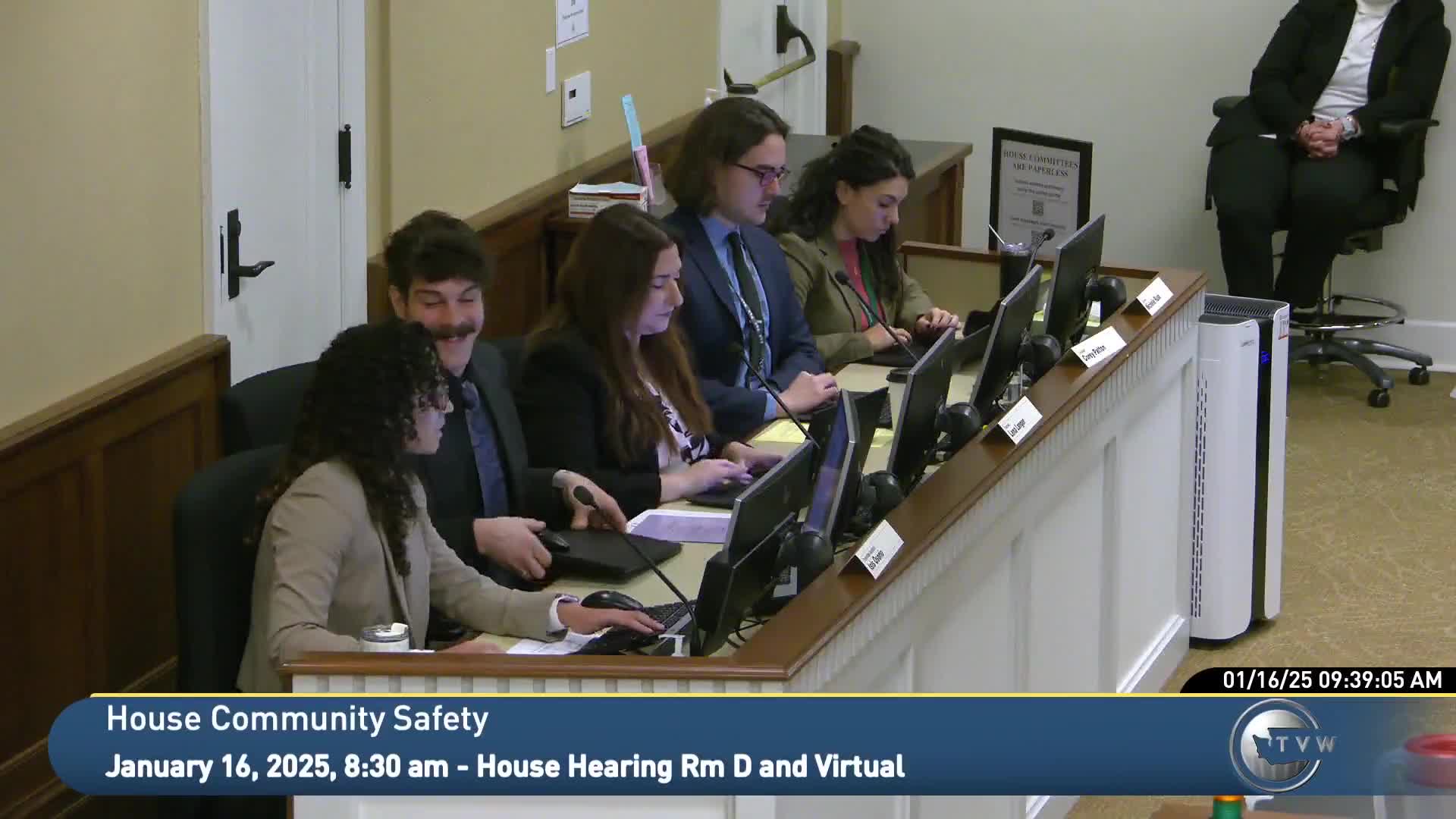Public hearing on clemency board expansion draws mixed testimony on composition and standards
Get AI-powered insights, summaries, and transcripts
Subscribe
Summary
House Bill 1131, proposing to expand the Clemency and Pardons Board from five to ten members and to alter certain procedures for commutation and pardon reviews, was the subject of a public hearing featuring divided testimony on board composition, training, and the proposal to use 'interest of justice' as a standard for commutations.
The Community Safety, Justice & Reentry Committee held a public hearing on House Bill 1131, a proposal to expand and change procedures for the state's Clemency and Pardons Board. Committee counsel summarized the bill's core provisions and multiple witnesses provided testimony both in support and with reservations.
Lina Langer, counsel to the committee, summarized the bill's principal changes: the board would expand from five to ten members; the governor should strive for diversity in appointments; member terms would increase from four to five years with a two-term limit; members would be eligible for per diem compensation up to $100 per day unless waived; members must receive specified training at least every two years; each petition would be reviewed by a panel of five board members selected by random drawing; the attorney general's office would provide counsel to the board; prosecutors would receive 90 days' advance notice of a scheduled hearing (up from 30); the board must submit an annual report listing persons granted commutation or pardon and any known recidivism; and the Department of Corrections would supervise persons granted conditional commutation when community custody is a condition.
Witnesses voiced a mix of support and concerns. Russell Brand, executive director of the Washington Association of Prosecuting Attorneys, said his organization generally supports expansion and the longer notice period but urged caution about prescribing specific professional backgrounds for board seats and asked for balance in any enumerated list. Brand also questioned the meaning of the bill's language allowing commutations "in the interest of justice" versus the existing "extraordinary circumstances" standard, asking for clarification of the intended standard.
James McMahon, policy director with the Association of Sheriffs and Police Chiefs, said his organization supports a clemency process but opposed doubling the board because, in his view, a smaller, intimate panel reduces the risk of factional voting and preserves deliberative decision making. McMahon also urged that victims and current board members be part of conversations about structural change.
Several witnesses urged expanding capacity and codifying procedures. Walter Waldron Ramsey, political director for Washington Community Action Network, said the community decides who goes to prison and should have a role deciding early release, and he argued that changing language to say clemency may be granted when "the sentence no longer serves the interest of justice" codifies current practice. Barbara Serrano, former senior policy adviser on public safety to Governor Inslee and a former review staffer, testified in support of the bill, noting long petition-processing backlogs, that reviewing a single petition can take four to eight hours, and that per diem pay would improve equity for board members.
Tom Solberg, a retired Spokane police officer and former ISRB (Indeterminate Sentence Review Board) member, recommended moving review authority to the ISRB or ensuring reviewers receive evidence-based decision-making training; he also warned the expansion could cost roughly $264,000 per year and suggested the money might be better invested in ISRB capacity.
Cindy Arens, representing the Washington Defender Association and the Washington Association of Criminal Defense Attorneys, said she supported adding lived-experience members and per diem compensation but urged changes to mandatory minimums in the bill's language, additional staff support for the board, and broader training requirements that include gender equity.
Committee members asked multiple questions about standards and victims' participation. Russell Brand and other witnesses confirmed the clemency process generally includes notice to and opportunity for victim participation and that the expanded board and longer notice period could increase victims' opportunity to participate. Several members said they want more detail on what "interest of justice" means and proposed exploring a more structured "path to clemency" that would create milestones petitioners could meet to qualify for review.
No committee vote was recorded on House Bill 1131 at the hearing; the session concluded after testimony and committee members said they would continue to examine amendments and fiscal impacts.
